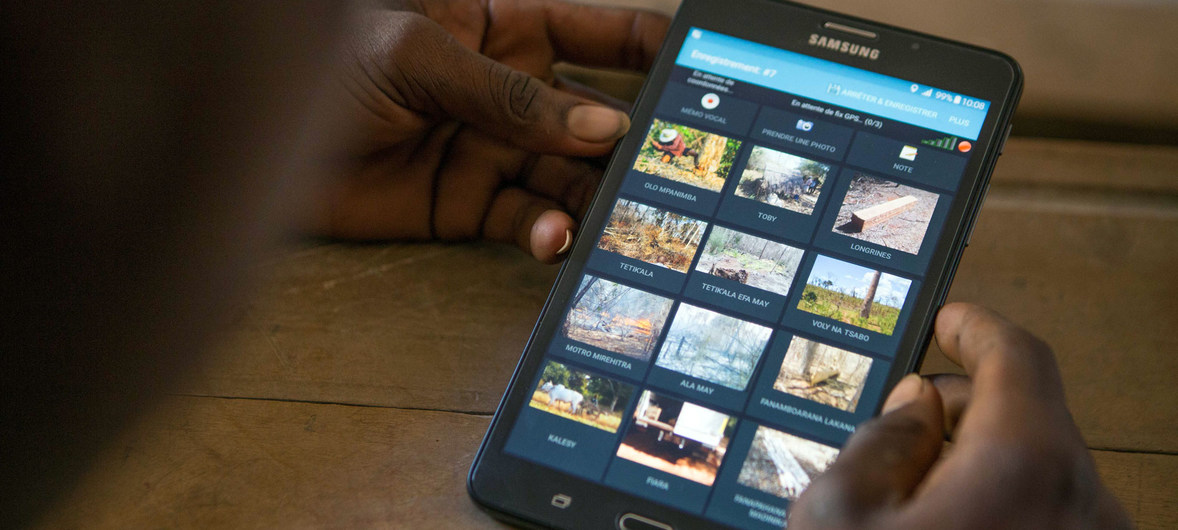
The Online Global Dialogue on Digital Inclusion for All took place on 16 February 2021 as a part of the 59th Commission on Social Development (CSocD59). This event gathered high-level technical experts, as well as representatives of Governments, civil society, academic institutions, and the private sector to discuss the urgency of addressing digital inclusion for all. Each speaker offered their unique contribution to creating concrete strategies, that have proven to be effective in tackling the digital divide, ensuring that everyone benefits from the digital transformation and actions to be taken to recover better from COVID-19 crisis.
Ambassador of the Permanent Mission of Argentina to the U.N. and the Chair of the 59th Commission on Social Development, Ms. María Del Carmen Squeff opened the session recognizing the development of parallel worlds. One in which people have access to digital technologies and one where there is no access at all. Inclusive holistic digital policies are required in order to address the needs of those who are experiencing the general digital divide and the subsequent inequalities.
Digital Inequality
“Leaving no one behind means leaving no one offline” said by Mr. Amine Lamrabat, Information Officer, Division for Inclusive Social Development at UNDESA, was echoed throughout the Global Dialogue. It means that the 3.7 billion people, almost half of the world’s population, that are not online miss the tremendous opportunities brought by the internet and digital technologies. A highlighted topic was to improve the accessibility of technologies for all people. ‘Universal design’ should mean that everyone is able to use it. This calls for improvements in the areas of, expanding languages provided online, adapted technologies for persons with disabilities such as loss of eyesight or reduced mobility, and extending internet capacities to rural, inner city, and geographically isolated communities. Ms. Daniela Bas, Director of the Division for Inclusive Social Development at UNDESA said, “We need to take a holistic and integrated approach, in the following four areas; extended access, affordability, digital skills, and awareness.”
Need for Data
To create equitable policies and holistic solutions to the challenges facing an inclusive digital community a greater emphasis on data collection is required. Ms. Alison Gillwald of ICT Africa iterated the need for continued collaboration with UNCTAD and ITU in the collection and synthesis of data for the creation of effective policies. In technology, the analyses often lay on the consumption side of the model. A greater focus must be on the gaps, such as accessibility or affordability, and improving the quality of life of all. The results of greater data collection would have profound impacts on extending access, improving education for children, and addressing the unique challenges of marginalized communities.
Holistic Approach
A holistic approach must be implemented in the way of blending civil society, private, and public sectors together in collaboration. The conversation that seeks to address the challenges must be broadened to include the diverse global community of all those who will use the products, internet, and technologies. The solutions must offer meaningful connection to allow all to be a part and benefit from being an internet citizen. This is to include daily access, appropriate devices and a fast and reliable connection. Many intersectional initiatives are already underway, such as the Economic Commission for Latin America and Caribbean that aims at ensuring and universalizing connectivity and affordability of digital technologies to address the many impacts of COVID-19.
This Global Dialogue, through the panel of experts, continues to the conversation and collaboration on addressing the future of digital technologies in order to achieve an inclusive, accessible and affordability community of online citizens. Director, Ms. Daniela Bas concluded, “We live in an era of rapid change… The pace of digital transformation has accelerated during the COVID-19. Therefore, if united globally, together we can advance social development and achieve the 2030 Agenda with leaving no one behind, then let's do it.”
For more information on other events during the 59th Commission for Social Development (CSocD59): https://bit.ly/un-csocd59
For the recorded video of this session: https://youtu.be/4zF-1D9jym0
For the concept note and speaker bios: http://bit.ly/csocd59-dialogue-digital-inclusion
Source: UNDESA
 Welcome to the United Nations
Welcome to the United Nations